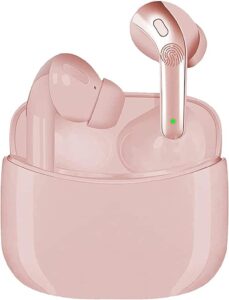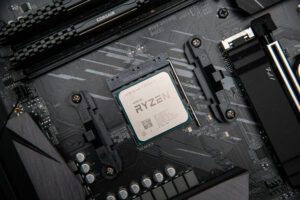Laptops are essential tools for any student, providing an easy way to stay organized and connected with school work. From taking notes in class, to researching online for homework assignments and projects, laptops offer a range of features that make studying easier. Not only can a laptop be used for completing schoolwork, but it can also help students take their learning to a whole new level. Let’s explore the ways how a laptop is useful for students today.
Advantages Of Using Laptops For Students
Improve Productivity:
Laptops make it easy for students to stay organized and productive. With a laptop, you can easily create documents, save notes, track deadlines, and store research material all in one place. A laptop also makes it easier to access online resources such as online libraries, which can significantly improve your productivity.
Easy Access To Information:
Laptops provide students easy access to information they need for their studies. With the internet, you can easily find the right answers to any question and look up research material quickly. You can also access online libraries and journals that were previously inaccessible without a laptop, which gives you a wider range of resources to work with.
Increase Flexibility:
Laptops offer students greater flexibility, allowing them to study from anywhere. Whether it is in the library, at home, or on-the-go, laptops make it easier to access and store information. This makes studying more convenient and efficient for students.
Better Organization:
Laptops can help students stay organized and on top of their work. With its powerful storage capabilities, a laptop allows you to store everything from course materials to project notes in one place, making it easier for you to keep track of all your schoolwork.
Enhance Collaboration:
Laptops can help students collaborate with each other more easily. With the help of laptops, students can quickly share documents and ideas while working on projects, which makes it easier to work together efficiently and effectively.
Improve Multimedia Capability:
A laptop’s multimedia capabilities can help students in a variety of ways. Students can watch educational videos to understand concepts better, which may be difficult to comprehend by just reading textbooks. Moreover, laptops make it easier to present projects and presentations with visuals and audio-visuals, which can really engage your audience.
Enhanced Creativity:
Laptops can be used to create and edit documents, slideshows and videos with ease, which makes it easier for students to express their creativity. With the help of laptops, student can easily create multimedia projects such as podcasts, videos and more that can really take their learning to the next level.
Easy Access To Learning Resources:
Laptops offer students easy access to a wide range of learning resources such as online libraries, journals and databases that may otherwise be difficult to access without a laptop. This makes it easier for students to find the answers they need quickly and easily.
How Laptops Help In Specific Learning Areas
Writing And Research
A laptop can be a great tool for students who are working on writing assignments or research papers. With its word processing capabilities, a laptop makes it easy to create and edit documents. You can also easily store research material in one place, making it easier to access when you need it. In addition, the internet makes it easy to find the right answers quickly and research material without having to leave your desk.
Presentation And Multimedia Project:
A laptop can help students create effective presentations and multimedia projects. With its range of multimedia tools, a laptop makes it easier to create engaging visuals and audio-visuals that can really make an impact on your audience.
Online Learning And Virtual Class:
Laptops make it easier to access online learning resources, which can be beneficial in virtual classes. With the help of a laptop, students can easily watch educational videos and explore different topics that may not available in traditional classroom settings. Moreover, laptops allow students to take part in discussion boards and chat rooms with their peers and professors from anywhere, which can make learning more interactive and engaging.
Math:
Laptops can be used to work on math problems by using tools such as graphing calculators or spreadsheet software. This makes it easier for students to visualize complex equations and solve problems in a much more efficient way than they could with paper and pencil.
Science:
Laptops can also be used for scientific research by providing access to online databases and journals that may not be available in a traditional library setting. In addition, laptops make it easier to collect data and store results which can be useful when working on experiments or other science-related projects.
Challenges Of Using Laptops In Education
Distraction And Lack Of Focus:
The use of laptops in classrooms can be a double-edged sword when it comes to learning. On one hand, they make it easier for students to access resources and collaborate with each other. However, the internet can also be a source of distraction if not managed properly. Students may get easily sidetracked by social media or other websites, which can lead to a lack of focus in the classroom.
Cost And Accessibility :
Another challenge of using laptops in the classroom is the cost. Laptops can be expensive, especially for students from low-income families. In addition, lack of internet access in certain areas may prevent some students from taking full advantage of their laptop.
Technical Issues And Maintenance :
Laptops can be prone to technical issues and may require frequent maintenance, which adds extra cost. In addition, laptops can be vulnerable to malicious software or viruses if they are not properly protected. This can lead to lost data or other serious problems.
In conclusion, laptops can be a great tool for students to access learning resources, create presentations and multimedia projects, and work on math and science problems. However, using laptops in the classroom comes with certain challenges such as cost, accessibility and technical issues. Therefore it is important to consider these challenges when deciding if laptops should be used in the classroom or not.



